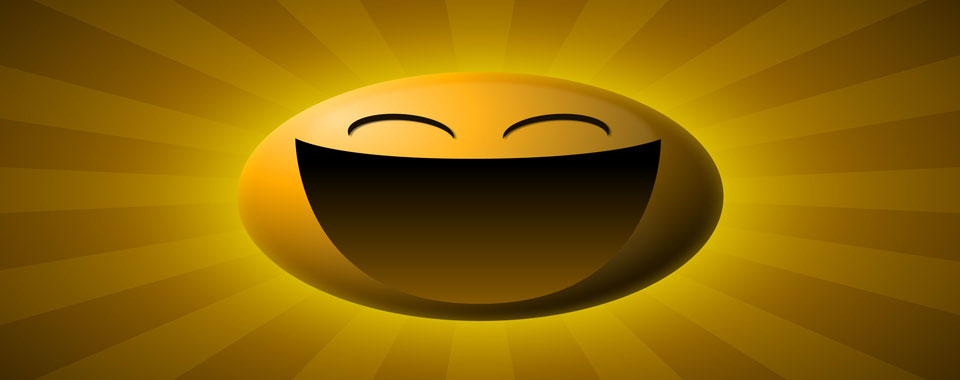We’ve previously known about the power of friends at work and the power of gratitude at work, and now we have a bit more on the power of humor at work.
There’s actually a class at Stanford’s business school called Humor: Serious Business. That makes me feel good about how we’re educating some MBAs. Humor is closely associated with “play,” and “play” is ripped from adults as soon as they become supposedly serious professionals. In fact, in this article recapping some of the research associated with the class, you’ve got this line:
Further, this data suggests that as people get older, they stop smiling and laughing as frequently. This and other emerging research collected by Stanford Graduate School of Business professor Jennifer Aaker and lecturer Naomi Bagdonas, who co-teach a course on the subject, suggests that people fall off a “humor cliff” — both in laugh frequency and self-perceptions of funniness — around the time they enter the workforce.
True. We take “professionalism” very seriously in most workplaces, although ironically we don’t know what it means.
What else do we know about humor at work?
Some humor at work research
From the same article above:
Humor also increases power through memorability. Venture capitalist David Hornik, who’s a general partner at August Capital, argued that most board meetings “run the spectrum from tedium to sadness, so if someone is willing to take the risk to create some levity, there is incredible value in that. People remember it.” Biologist and author John Medina agrees, noting in his book Brain Rules that “the brain doesn’t pay attention to boring things.” In addition to oxytocin, laughter releases dopamine, which aids in memory and information processing.
There are other good research bits in that article, but it overall points to this — workplaces can be so dry, dull, and KPI-focused. Wouldn’t a greater focus on humor at work help in this regard?
Why is humor at work not normative?
Well, it might be normative across some teams or cubicle areas. But why isn’t it at scale? A few reasons:
- Concerns about professionalism
- HR wanting people to be “serious”
- The belief that humor and “achieving revenue goals” must be opposing forces
- The “play” issue mentioned above
- This idea that work is “an adult thing” and you can’t be out there laughing and having fun
This kind of fucks with people’s heads, right?
Right. Because many of us spend a lot of time at work for maybe 40-50 years of our lives, which is a long time. In reality, we shouldn’t be working more than 55 hours/week but many of us still do, of course. If you’re spending 60 hours/week associated with work — maybe half your waking hours — shouldn’t you be laughing and enjoying it at some level? Right. That’s why humor at work is important.
The worst places to work are dry, dull, heads down, spreadsheet-focused cultures. Hard to build relationships there, and as such, many managers end up practicing “command and control,” which benefits no one.
How could we interject more humor at work?
Couple of quick hit suggestions:
- Stop letting HR be the office cop; transition them to value-add roles around hiring metrics, etc.
- Try to hire for humor. Maybe even “tell me a funny story about your life.” (I’m sure that’s illegal, but eh.)
- Promote based on those who seem to relate well to others and make them laugh.
- Stop worrying about professionalism and adulthood as higher-order concepts and just realize this is a group of people spending time together towards a vaguely-similar goal.
- Have knowledge-sharing type events around humor (honestly!)
- Allow yourself to joke about the bullshit and politics
And hey look, in recent years we’ve had research that “funny is the new sexy,” so maybe humor at work can be the new revenue driver.

I put aside my nascent dreams of becoming a comedian to be #1 Funnyman in the nonprofit world. Seriously, though, I’ve found telling jokes at work and being generally an amiable goof to be a really effective way to build workplace camaraderie. The stand-up boom will soon be disrupted, anyhow